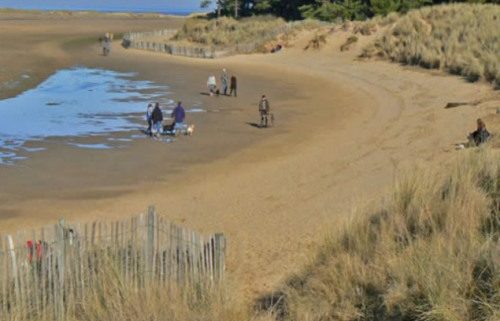Y11 GCSE Geography Field Trip to Norfolk 2017
Mr D. Cunningham, Subject leader: Geography, writes:
Due to the specification changes, geography coursework has changed this year. Now, instead of completing a write up of a geographical enquiry, students will be examined on it in the paper 3 unit of the exam. This means they have to know the complete procedure from start to finish and be able to answer questions on any aspect of it. To make matters even more tricky, students have to complete one human geography enquiry and one physical geography enquiry.
This year, the geography field trip took place on Monday 9th to Wednesday 11th October, with 35 students participating.
On the Monday and Wednesday, students collected data on the effectiveness of different coastal defence schemes. Students had to collect data for drawing beach profiles and field sketches as well as completing a bi-polar survey which allowed them to quantify qualitative data. All the time they had to bear in mind what they were doing, how they were doing it and why.
On the Tuesday, students carried out the physical geography element of the enquiry. The task was to identify how the characteristics of a sand dune system changed with distance from the sea. Again, students had to create an accurate profile of the dunes as well as measuring the height, density and diversity of the vegetation and the soil PH. It was a long and tiring day, however this was made up for by the whole group having plenty of fresh air in some of the country’s best coastal landscapes.
While in Norfolk, students got to see the village of Happisburgh where coastal protection had been done away with, where the decision had been made to allow the sea to erode the coast as normal. This contrasts starkly with Sea Palling where millions has been spent. This may be due to the fact that Sea Palling is fairly close to the Norfolk Broads which has a multi-million pound tourist industry, whereas Happisburgh just has agricultural land. But who knows? Maybe the students can come up with some ideas. This hasn’t stopped locals from vigorously campaigning to get coastal defences reinstalled, but to no avail.
By the end of both days, we retired to the Sheringham youth hostel which was both warm and welcoming, with excellent hot food provided.
Students spent some time in the evening working on collating their data and making sure that their booklets were up to date, as well as carrying out the soil PH experiments. The hard work students put in means that the trip was successful. Now all the students have to do is collate, organise, present and write up their findings.







